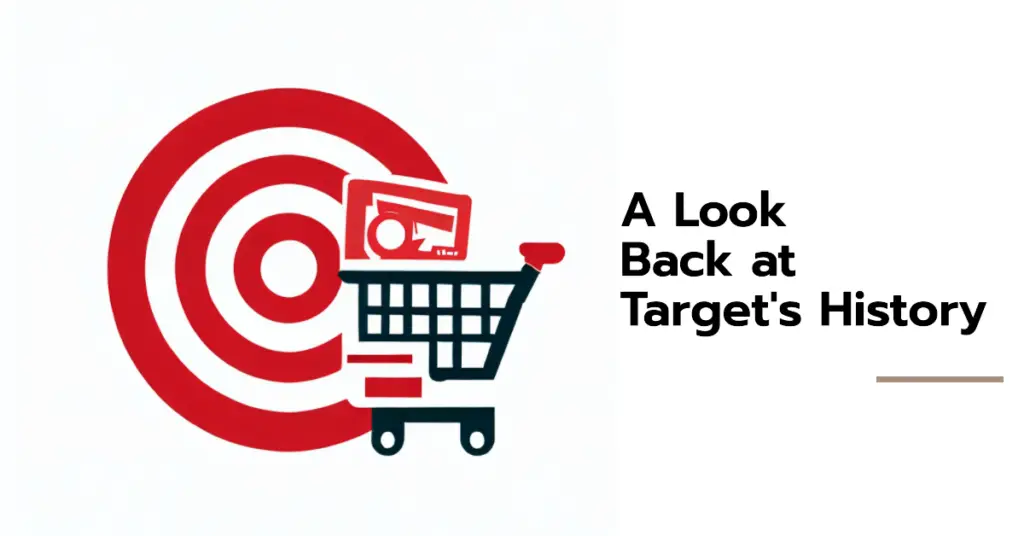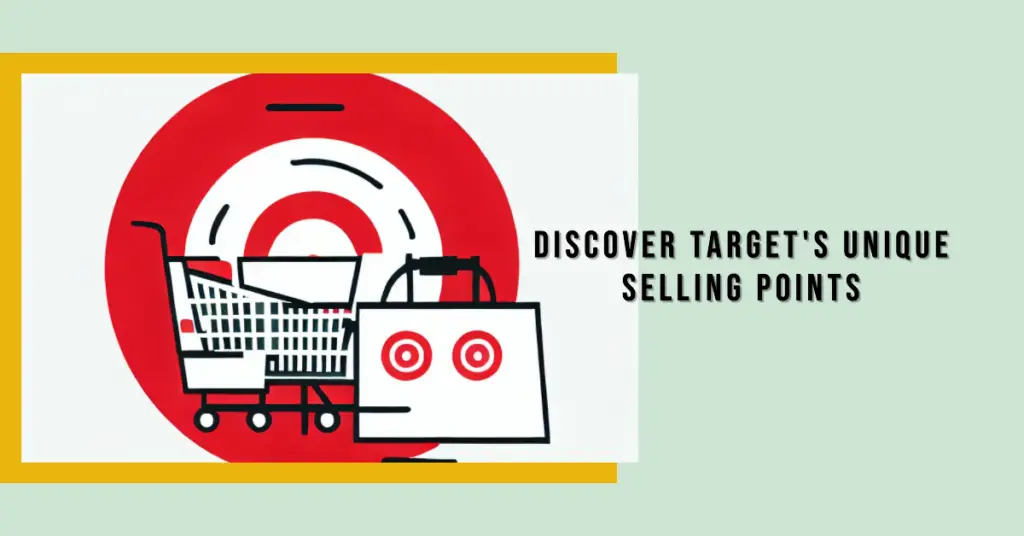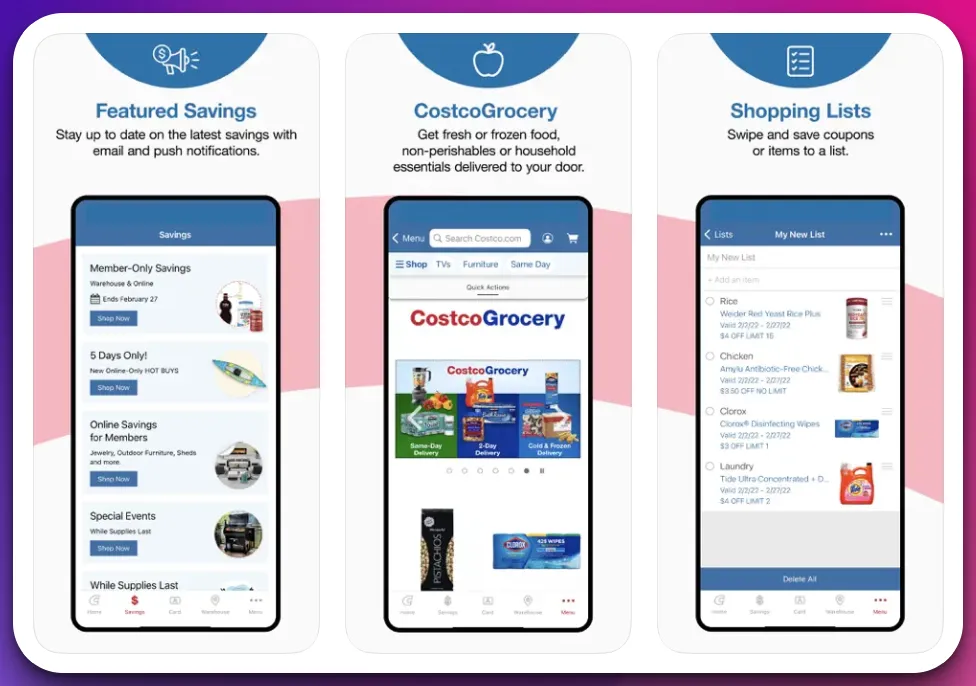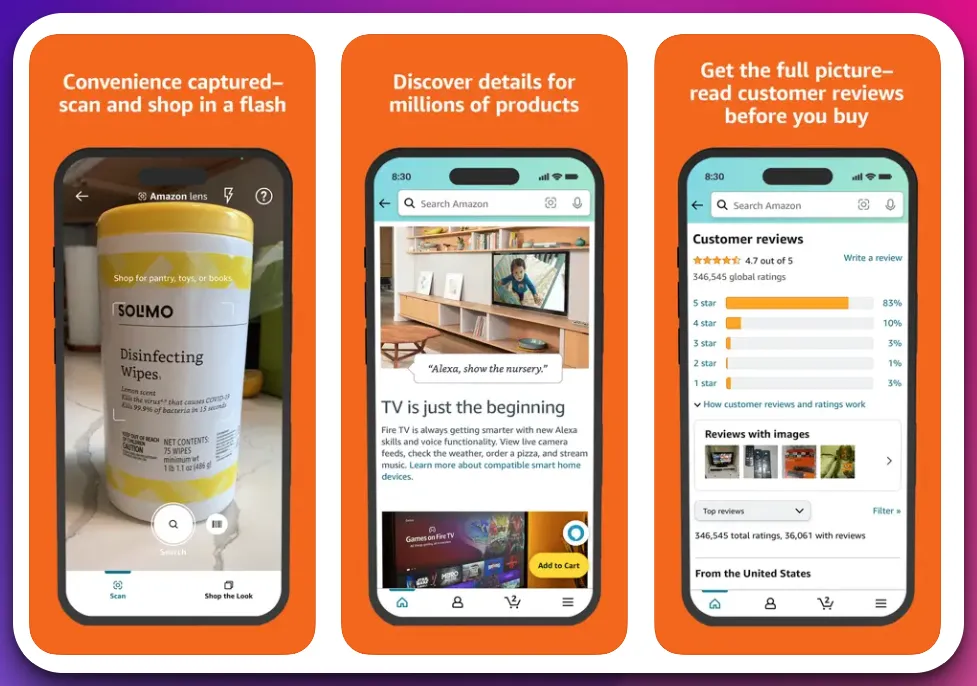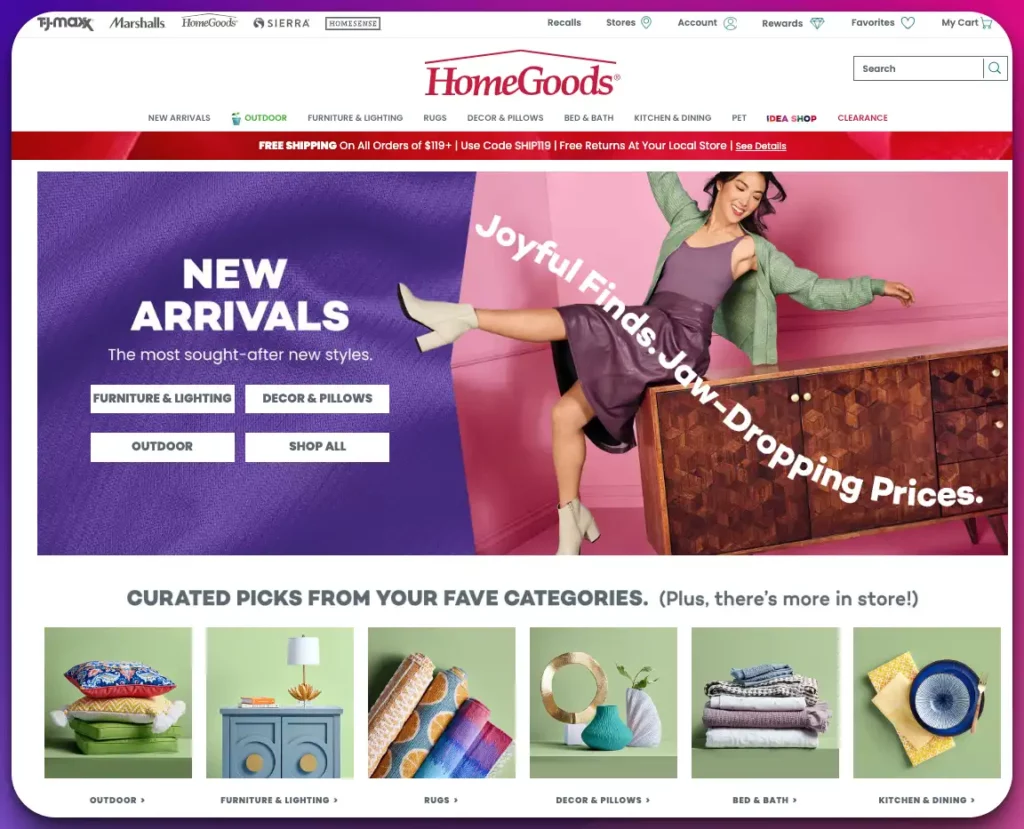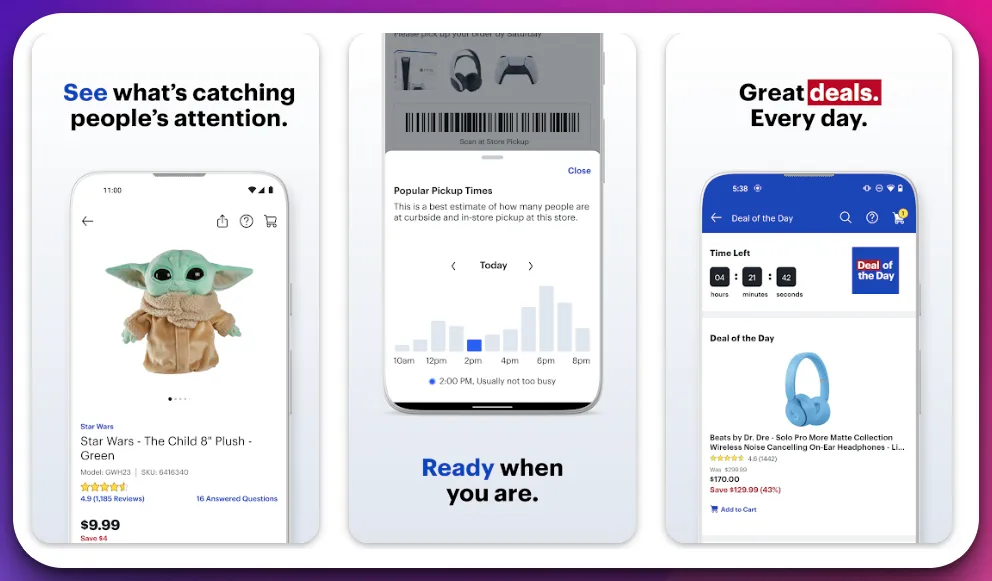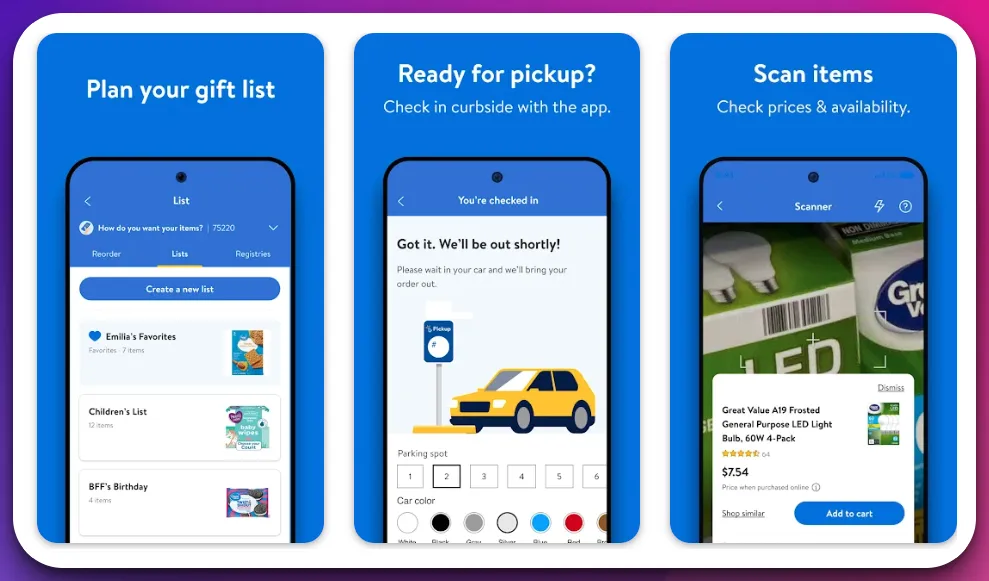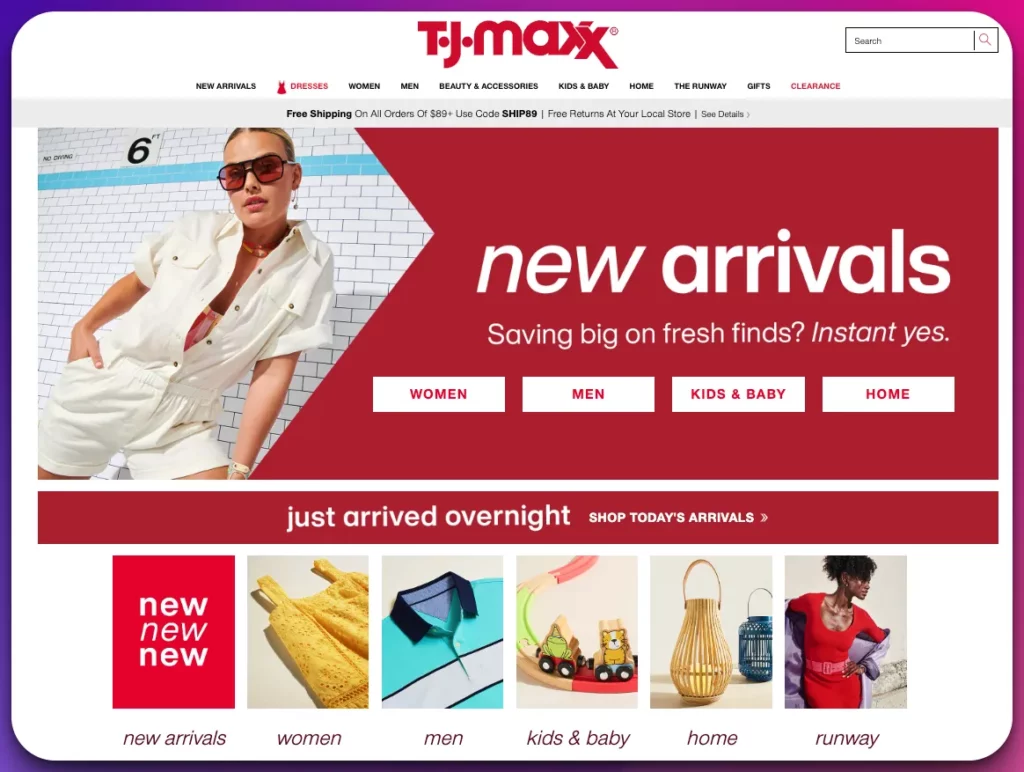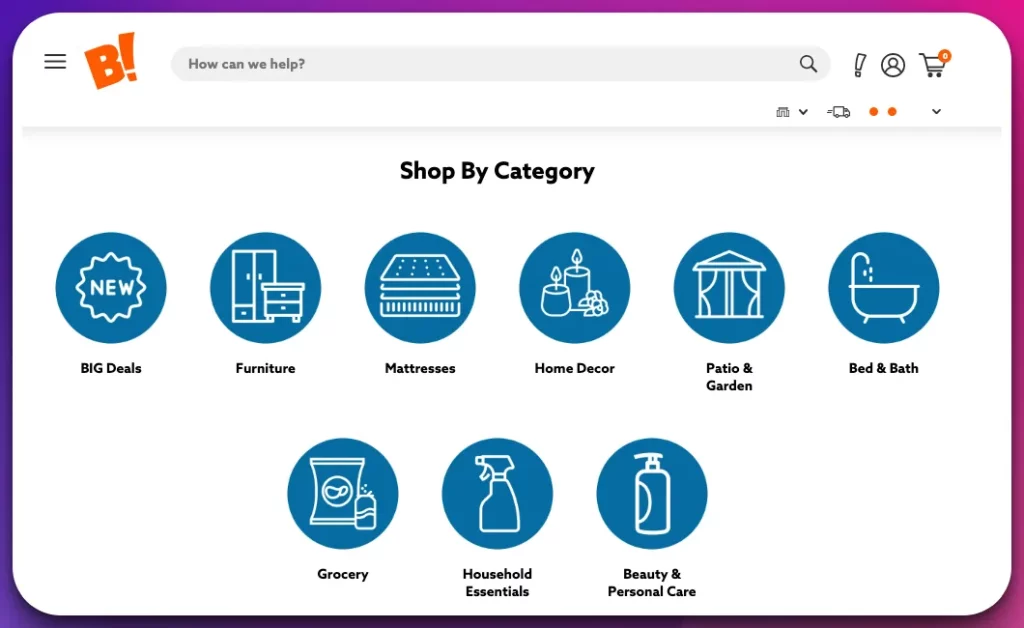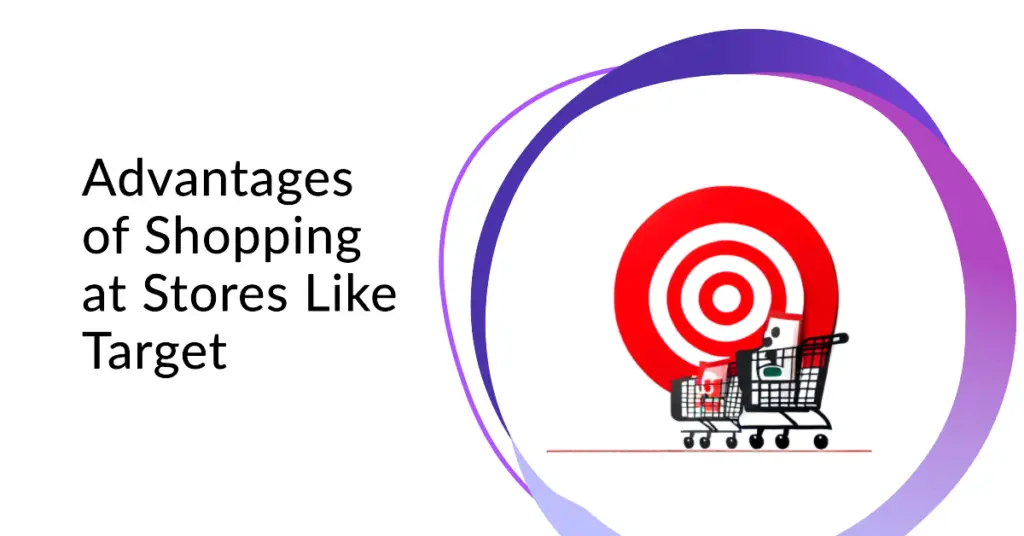As a budget-conscious shopper, you’re probably always looking for deals and discounts.
You love stores like Target that offer various high-quality goods at competitive prices.
But sometimes, despite your best efforts, you want more — more variety, bargains, or options. The dilemma is it’s challenging to find stores that give you the same balance of value, diversity, and convenience that you get from Target.
And it’s frustrating, isn’t it? Those times when you’ve gone through every aisle of your local Target but couldn’t find what you were looking for.
Or when you wanted to compare prices but the alternatives were too expensive or lacked the quality of the product. Moreover, online shopping can be a minefield with questionable sellers, inconsistent pricing, and varying shipping policies. We’ve compiled this comprehensive guide on the best stores like Target.
In this article, we will delve into numerous other online and physical retailers that can offer you a comparable or even superior shopping experience. We’ll break down each store’s offerings, pricing, customer service, and more, allowing you to find the perfect match for your shopping needs.
So, sit back, relax, and guide us through your new favorite alternatives to Target.
The History of Target
Target, a retail giant known for its distinctive red logo and memorable shopping experiences, has a captivating history shaping its success.
Originally founded in 1902 as the Dayton Dry Goods Company, Target’s journey began in the suburbs of Minneapolis, Minnesota. 1962 the company rebranded as Target, reflecting its ambition to provide a unique and appealing retail environment.
With a focus on affordable yet stylish merchandise, Target revolutionized the industry by introducing the concept of discount merchandising. This approach allowed them to cater to value-conscious consumers seeking quality and savings. Over the years, Target has expanded its product offerings beyond apparel and home goods, venturing into groceries, electronics, and other categories.
Target’s commitment to innovation has been exemplified through exclusive collaborations with esteemed designers and brands. These partnerships have generated excitement and buzz, making Target a sought-after destination for fashion-forward consumers.
Today, Target continues to evolve by seamlessly blending its online and offline shopping experiences, providing convenience and accessibility to its customers. With a rich history spanning over a century, Target remains an influential force in the retail industry, constantly adapting to meet the ever-changing needs of its loyal customer base.
Target’s Unique Selling Points
Target, a renowned retail powerhouse, has garnered a strong following and positioned itself as an industry leader due to its unique selling points. One of its key strengths lies in its affordable pricing strategy, which enables customers to find quality products at competitive prices.
Target also sets itself apart through its vast product offerings, spanning diverse categories such as apparel, home goods, electronics, and groceries. Moreover, Target’s ability to forge exclusive partnerships and designer collaborations distinguishes it from competitors.
These collaborations bring limited-edition and high-end products to their shelves, attracting fashion-conscious consumers seeking unique and stylish options.
Target’s RedCard loyalty program further enhances its appeal. With this program, customers enjoy exclusive discounts, early access to sales, and free shipping, fostering loyalty and incentivizing repeat purchases.
Lastly, Target emphasizes a convenient shopping experience, boasting well-organized stores, easy navigation, and friendly customer service. These elements, combined with its unique selling points, make Target a preferred destination for shoppers seeking affordability, variety, exclusivity, and a pleasant retail experience.
Here, we have prepared a list of some of the best ones for you –
Top Department Stores Like Target – Our Pick👌
1. Costco
Regarding top stores similar to Target, Costco is a leading contender in providing an exceptional shopping experience. While Costco and Target have unique approaches, they share several key attributes that make Costco a noteworthy choice for consumers seeking a store akin to Target.
Costco, a renowned membership-based warehouse retailer, offers a vast and diverse range of products, much like Target. From groceries and electronics to home goods and apparel, Costco satisfies a wide range of consumer needs under one roof.
Like Target’s affordable pricing strategy, Costco’s distinctive concept of bulk buying allows shoppers to save money by purchasing items in larger quantities.
This approach appeals to budget-conscious individuals and families who value cost-effective shopping.
Furthermore, both retailers prioritize customer loyalty. While Target has its popular RedCard loyalty program, Costco offers exclusive benefits to its members, including discounted prices, access to unique products, and additional services like travel and insurance. These loyalty programs foster customer retention and belonging among their respective shopper bases.
While Costco’s warehouse-style stores may differ in layout from Target’s more traditional setup, both retailers strongly emphasize providing an enjoyable and convenient shopping environment. They strive to ensure customers have easy access to products, efficient checkout experiences, and helpful customer service.
In summary, while each store has its distinctive characteristics, Costco’s wide product selection, value-driven approach, focus on customer loyalty, and commitment to a seamless shopping experience make it a top contender among stores like Target.
Shoppers seeking a similar shopping experience that combines convenience, affordability, and variety will find Costco an excellent alternative to Target.
When considering Costco as a store similar to Target, it is important to evaluate the pros and cons to make an informed shopping decision. Here are some notable advantages and disadvantages:
Pros:-
Bulk Buying and Cost Savings: Costco’s bulk buying model allows customers to save money by purchasing items in larger quantities. This can benefit families or individuals looking to stock up on essentials or frequently used products.
Wide Product Selection: Like Target, Costco offers various products across various categories, including groceries, electronics, home goods, and more. This extensive selection caters to a wide range of consumer needs.
Membership Benefits: Costco’s membership program provides exclusive benefits such as discounted prices, access to unique products, and additional services. This can result in substantial savings for loyal members.
Quality and Value: Costco is known for offering high-quality products at competitive prices. Their commitment to value ensures that customers get good deals on their purchases.
Cons:-
Membership Requirement: Unlike Target, which is open to all customers, Costco requires a membership to shop. This can be a drawback for individuals who prefer not to pay an annual fee or do not have a nearby Costco location.
Bulk Packaging: While buying in bulk can save money, it may not suit everyone. Some consumers may find storing or consuming large quantities of certain items inconvenient.
Limited Store Locations: Although Costco has a substantial presence, its store locations may be limited compared to Target, which has a more extensive network. This can be a disadvantage for customers who do not have convenient access to a nearby Costco store.
Limited Brand Options: Costco’s focus on value may result in a narrower selection of brands than Target. Customers looking for specific brands or designer products may find their options relatively limited at Costco.
Ultimately, shopping at Costco or Target depends on individual preferences and needs.
While Costco offers cost savings, a wide selection of products, and exclusive membership benefits, Target provides a more accessible and diverse shopping experience without needing a membership.
2. Amazon
When exploring top stores like target and walmart, it’s impossible to overlook the retail giant Amazon. While Amazon and Target differ in their approach, they share notable qualities that establish Amazon as a significant contender in the retail landscape.
As an e-commerce powerhouse, Amazon offers an extensive and diverse range of products akin to Target’s comprehensive offerings. From electronics and home goods to apparel and groceries, Amazon satisfies a wide spectrum of consumer needs with convenience at the forefront.
Like Target, Amazon has gained recognition for its competitive pricing. The platform’s vast marketplace fosters competition among sellers, enabling customers to find competitive deals and cost savings across various product categories.
Moreover, Amazon’s robust logistics infrastructure ensures efficient shipping and fast delivery. This commitment to expedited fulfillment aligns with Target’s emphasis on convenience and customer satisfaction.
Amazon’s Prime membership program also mirrors Target’s loyalty initiatives. Prime members enjoy free shipping, exclusive deals, and access to streaming services, fostering customer loyalty and satisfaction.
However, it’s important to note that while Amazon offers a vast selection and convenient shopping experience, some customers may miss the tangible experience of browsing physical stores that Target provides.
In summary, Amazon’s expansive product range, competitive pricing, convenient e-commerce platform, and membership perks position it as a top contender among stores like Target.
Whether customers seek the ease of online shopping or a wide array of product options, Amazon’s prominence as a digital retail giant cannot be overlooked.
Pros:-
Vast Product Selection: Like Target, Amazon offers an extensive range of products across various categories. From electronics and books to clothing and home goods, customers can find almost anything they need on the platform.
Competitive Pricing: Amazon’s marketplace model fosters competition among sellers, often resulting in competitive prices and deals. Customers can often find products at lower prices compared to traditional brick-and-mortar retailers.
Convenience and Accessibility: Amazon’s e-commerce platform provides unparalleled convenience. Customers can shop from their homes, accessing various products available 24/7. Additionally, Amazon offers fast and reliable shipping options, including Prime’s free two-day shipping.
Membership Benefits: Amazon Prime membership offers a range of perks, including free shipping, exclusive deals, access to streaming services, and more.
These benefits enhance the shopping experience and can provide significant value to frequent Amazon shoppers.
Cons:-
Lack of Physical Store Experience: Amazon primarily operates online unlike Target’s physical stores. This absence of physical locations means customers miss out on the tangible experience of browsing aisles and seeing products in person.
Limited Personal Interaction: With Amazon’s online shopping model, there is minimal personal interaction with store associates. This may be a drawback for customers who prefer or require in-person assistance or have specific product inquiries.
Returns and Exchanges: While Amazon has a robust return policy, returning or exchanging products may be more complex than returning items to a physical store like Target. It involves packaging and shipping the item back to Amazon, which can be inconvenient for some customers.
Counterfeit and Quality Concerns: Amazon faces challenges with counterfeit or low-quality products from third-party sellers as an online marketplace. Customers must exercise caution and read reviews to ensure the quality and authenticity of the items they purchase.
Ultimately, the choice between Amazon and Target depends on individual preferences.
Amazon excels in convenience, vast product selection, and competitive pricing, while Target offers a more traditional in-store experience and immediate customer service.
3. HomeGoods
HomeGoods is a store resembling Target, offering diverse products to cater to every shopper’s needs. Renowned for its unique and affordable home decor finds, HomeGoods has positioned itself as a go-to destination for individuals seeking to enhance their living spaces.
With a meticulously curated selection of merchandise, HomeGoods caters to the discerning tastes of those who appreciate exquisite design and distinctive pieces.
From trendy furniture to stylish accessories, the store’s ever-changing inventory ensures that each visit yields a delightful surprise. Moreover, HomeGoods provides value for money, allowing shoppers to spruce up their homes without breaking the bank.
Similar to Target, HomeGoods exudes an aura of warmth and familiarity, fostering an enjoyable shopping experience. The store’s knowledgeable staff adds a personal touch, assisting customers in finding the perfect items to suit their preferences.
Whether you seek a cozy rug to adorn your living room or a statement piece to infuse your space with personality, HomeGoods offers an extensive range of options.
Embracing a commitment to quality, HomeGoods ensures that its products exhibit aesthetic appeal and boast durability. This emphasis on reliability distinguishes it as a reliable alternative to Target, as both stores prioritize customer satisfaction and product longevity.
In conclusion, HomeGoods is a worthy contender for those who yearn for a shopping experience akin to Target’s diverse offerings. Its focus on distinctive home decor, competitive pricing, and excellent customer service make it a formidable choice in similar retailers.
Pros:-
Unique Home Decor Finds: HomeGoods offers a diverse and ever-changing selection of home decor items, allowing customers to discover unique and distinctive pieces to enhance their living spaces.
Affordable Pricing: HomeGoods is known for its competitive pricing, making it an attractive option for budget-conscious shoppers who want to decorate their homes without overspending.
Quality Products: HomeGoods emphasizes quality and durability in its product offerings. Customers can expect well-crafted items that stand the test of time.
Personalized Shopping Experience: With knowledgeable staff members, HomeGoods provides personalized assistance to customers, helping them find the perfect items to match their preferences and style.
Exciting Surprises: HomeGoods’ ever-changing inventory ensures that each visit is an adventure, as shoppers can always discover new and unexpected treasures.
Cons:-
Limited Product Categories: Unlike Target, which offers a wide range of products, HomeGoods primarily focuses on home decor items. Shoppers looking for groceries, electronics, or clothing may need to visit other stores.
Limited Online Shopping Options: HomeGoods has a more limited online presence than Target, making it less convenient for those who shop online or access a wider selection of products.
Varied Store Locations: HomeGoods store locations can be unevenly distributed, which may limit accessibility for some customers who do not have a store nearby.
Limited Return Policy: HomeGoods has a stricter return policy than Target, which may pose challenges for customers who wish to return or exchange items.
Overall, HomeGoods is an excellent alternative to Target for individuals seeking unique home decor items at affordable prices. However, it may not provide the same breadth of product categories or online shopping convenience as Target.
4. Best Buy
Best Buy is a leading store that rivals Target because of its expansive offerings and exceptional customer experience. As a go-to destination for electronics and technology, Best Buy stands out as a reliable alternative for shoppers seeking a diverse selection of high-quality products.
One of the key strengths of Best Buy, similar to Target, lies in its extensive range of electronics and appliances.
From cutting-edge smartphones and laptops to home theater systems and kitchen appliances, the store boasts a vast inventory that caters to the needs of tech enthusiasts and everyday consumers alike.
In addition to its wide array of products, Best Buy differentiates itself through its commitment to knowledgeable staff and superior customer service.
The store’s well-trained employees, known as Blue Shirts, possess deep expertise in the latest technologies. They always assist customers with queries, offering personalized recommendations to ensure a seamless shopping experience.
Furthermore, Best Buy’s Geek Squad service differentiates it from other retailers, including Target. With Geek Squad, customers can access technical support, device repairs, and installation services, providing convenience and peace of mind.
In conclusion, for consumers seeking a store similar to Target that specializes in electronics and offers exceptional customer service, Best Buy is a compelling choice.
With its vast product selection, knowledgeable staff, and Geek Squad services, Best Buy creates an environment that caters to the needs of tech-savvy shoppers, making it a formidable competitor.
Pros:-
Extensive Electronics Selection: Best Buy offers various electronics and appliances, including the latest smartphones, laptops, home theater systems, and more. Shoppers can find everything they need in one place.
Knowledgeable Staff: Best Buy’s employees, known as Blue Shirts, possess deep expertise in the latest technologies. They can provide personalized recommendations and assist customers with questions, ensuring a positive shopping experience.
Geek Squad Services: Best Buy’s Geek Squad offers technical support, device repairs, and installation services. This additional support adds convenience and peace of mind for customers needing assistance with their purchases.
Competitive Pricing: Like Target, Best Buy offers competitive product pricing, often with promotions and discounts. Customers can find great deals and value for their money.
Online and In-Store Shopping: Best Buy provides online and in-store shopping options, catering to customers’ preferences. The online platform offers convenience, while the physical stores allow hands-on product experiences.
Cons:-
Limited Product Diversity: While Best Buy excels in electronics, it may have a more limited selection of other product categories than Target. Shoppers looking for a wide variety of goods may need to visit other stores.
Less Focus on Home Goods: Unlike Target, Best Buy primarily focuses on electronics and technology, with fewer offerings in home decor, clothing, and other non-electronic items.
Potentially Higher Prices: While Best Buy offers competitive pricing, some products may have higher prices than other retailers. Shoppers need to compare prices before making a purchase.
Limited Grocery and Household Items: Best Buy does not carry a comprehensive range of grocery or household items, which are staples at Target. Customers may need to visit other stores to fulfill their everyday needs.
Best Buy is a solid alternative to Target, particularly for shoppers searching for a wide selection of electronics and exceptional customer service. While it may have limited product diversity and non-electronic offerings, Best Buy’s knowledgeable staff, Geek Squad services, and competitive pricing make it a compelling choice for tech enthusiasts and consumers.
5. Walmart
Walmart stands as a formidable store that bears a resemblance to Target in its vast offerings and commitment to customer satisfaction. As a versatile retail giant, Walmart competes with Target by providing a wide range of products to meet the needs of diverse consumers.
Like Target, Walmart boasts an extensive inventory spanning various categories, including groceries, household items, electronics, apparel, and more.
This diverse selection makes Walmart a one-stop destination for shoppers seeking convenience and variety. One of the key strengths of Walmart, like Target, is its competitive pricing. The store emphasizes affordability, offering customers access to everyday essentials and luxury items at budget-friendly prices.
In terms of scale and reach, Walmart’s extensive network of stores and robust e-commerce platform ensures that customers can shop at their convenience.
Whether through in-store visits or online orders, Walmart caters to the preferences and lifestyles of a wide customer base. Furthermore, Walmart’s commitment to customer satisfaction is evident in its customer service initiatives, including easy returns, exchanges, and responsive support channels.
These efforts aim to provide a positive shopping experience that aligns with Target’s customer-centric approach.
In conclusion, Walmart is a compelling alternative to Target, offering an expansive selection of products at competitive prices. With its wide reach, affordable pricing, and commitment to customer satisfaction, Walmart solidifies its position as a formidable competitor in stores like Target.
Pros:-
Wide Range of Products: Walmart offers various products across multiple categories, including groceries, household items, electronics, apparel, and more. Shoppers can find everything they need in one place.
Competitive Pricing: Walmart is known for its competitive pricing, often offering everyday essentials and popular items at budget-friendly prices. This makes it an attractive option for price-conscious shoppers.
Convenience: With a large network of physical stores and a robust e-commerce platform, Walmart provides convenience and accessibility for customers. They can choose to shop in-store or online, depending on their preferences.
Customer Service: Walmart emphasizes customer satisfaction with initiatives such as easy returns and exchanges and responsive customer support channels. They strive to address any concerns or issues promptly.
Scale and Reach: Walmart’s extensive presence ensures that customers can find a store nearby, regardless of location. This widespread availability contributes to the store’s convenience and accessibility.
Cons:-
Store Layout: Some shoppers find Walmart’s layout less organized and cluttered than Target. Navigating the aisles may require more effort to locate specific items.
Product Quality: While Walmart offers a wide range of products, some customers have expressed concerns about the quality of certain items. It’s advisable to read reviews and check product details before purchasing.
Limited Specialty Items: Walmart may have a more limited selection of specialty or niche products than Target. Shoppers looking for specific brands or unique items may need to explore other retailers.
Crowded Stores: Due to Walmart’s popularity and large customer base, stores can sometimes be crowded, especially during peak shopping hours. This may lead to longer checkout lines and a less relaxed shopping experience.
In summary, Walmart is a prominent competitor to Target, offering a wide range of products at competitive prices with a strong emphasis on customer satisfaction.
While there may be some concerns regarding store layout and product quality, Walmart’s convenience, affordability, and extensive reach make it a viable alternative for shoppers seeking a store like Target.
6. TJ Maxx
TJ Maxx is a compelling store that shares similarities with Target, offering an exciting and unique shopping experience. As a popular retailer, TJ Maxx stands out for its selection of clothing, accessories, and home goods, making it a worthy alternative to Target for savvy shoppers seeking quality products at discounted prices.
Like Target, TJ Maxx prides itself on offering brand-name merchandise at affordable prices. The store’s treasure hunt shopping concept adds an element of thrill as customers browse through an ever-changing assortment of products to uncover hidden gems.
With a focus on off-price retailing, TJ Maxx offers customers the opportunity to find high-end and designer items at a fraction of the original cost. This appeals to fashion enthusiasts and bargain hunters alike, as they can score stylish apparel and accessories without compromising quality.
Moreover, TJ Maxx’s rotating inventory ensures that each visit brings new surprises. From trendy clothing to home decor and kitchen essentials, shoppers can find an eclectic mix of products, adding excitement and discovery to their shopping experience.
While TJ Maxx may not offer the same breadth of product categories as Target, its focus on affordable fashion and unique home goods sets it apart. With its emphasis on value and a constantly changing selection, TJ Maxx offers a distinctive shopping experience for those seeking a store similar to Target.
Pros:-
Affordable Prices: TJ Maxx offers brand-name merchandise at discounted prices, allowing shoppers to find quality products at more affordable rates than traditional retail stores.
Variety of Products: TJ Maxx carries a diverse range of products, including clothing, accessories, home goods, and more. The rotating inventory ensures that there are always new and exciting items to discover.
Designer and High-End Brands: TJ Maxx provides an opportunity to purchase designer and high-end items at reduced prices. This appeals to fashion-conscious individuals who want to find unique and stylish pieces without breaking the bank.
Treasure Hunt Shopping Experience: TJ Maxx’s “treasure hunt” concept adds an element of excitement to the shopping experience. Customers never know what hidden gems they may find, creating a sense of thrill and discovery.
Value for Money: Shoppers can get more for their money at TJ Maxx, as the store offers quality products at discounted prices. This value proposition makes it an attractive option for budget-conscious individuals.
Cons:-
Limited Product Availability: While TJ Maxx offers a variety of products, the selection may be more limited compared to Target. Shoppers looking for specific items or a wide range of product categories may need to explore other stores.
Irregular Sizing: Due to off-price retailing, finding specific sizes can sometimes be challenging at TJ Maxx. Finding the right fit for clothing items may require more time and effort.
Inconsistent Inventory: The rotating inventory at TJ Maxx means that popular items may sell out quickly, and certain products may not be consistently available. This can make finding specific items more difficult or restocking favorite products.
Less Focus on Non-Fashion Categories: While TJ Maxx offers home goods and other non-fashion items, its primary focus is fashion and accessories. Customers seeking a broader selection of non-fashion items may need to explore other retailers.
In summary, TJ Maxx provides an enticing shopping experience with affordable prices, a diverse range of products, and the opportunity to find designer and high-end brands at discounted rates.
While it may have limitations regarding product availability and sizing, TJ Maxx’s value for money and unique shopping experience makes it a noteworthy alternative to Target.
7. Big Lots
Big Lots stand as a notable store that can be considered akin to Target, offering a distinct shopping experience for budget-conscious consumers. With its focus on discounted prices and a wide range of products, Big Lots is a compelling alternative for those seeking quality items at affordable rates.
Like Target, Big Lots provides a diverse selection of merchandise, encompassing categories such as home decor, furniture, household essentials, electronics, and more. Shoppers can find various products to meet their everyday needs and add a touch of style to their living spaces.
One of the key strengths of Big Lots lies in its commitment to offering discounted prices. The store sources products from various channels, including closeouts, overstocks, and discontinued items, allowing customers to enjoy substantial savings on their purchases.
Furthermore, Big Lots distinguish itself with its ever-changing inventory, creating a treasure hunt shopping experience. Customers often find exciting surprises and unique finds during each visit, adding an element of excitement and discovery to their shopping trips.
While Big Lots may have a different store layout and atmosphere than Target, its emphasis on affordable pricing and a diverse range of products makes it a viable option for consumers seeking a store similar to Target.
Whether finding great deals on household items or adding personal touches to their homes, Big Lots offer an attractive shopping destination for budget-savvy shoppers.
Pros:-
Discounted Prices: Big Lots is known for its discounted prices, allowing customers to find quality products at lower costs than traditional retailers. This makes it an attractive option for budget-conscious shoppers.
Diverse Selection: Like Target, Big Lots offers various products across various categories, including home decor, furniture, electronics, and more. Shoppers can find various items to suit their needs and preferences.
Ever-Changing Inventory: Big Lots’ ever-changing inventory creates an exciting and unique shopping experience. Customers can discover new and unexpected items during each visit, adding a sense of thrill and novelty to their shopping trips.
Opportunity for Bargains: With its sourcing of closeouts, overstocks, and discontinued items, Big Lots allows customers to find great bargains and significant savings on their purchases.
Convenient Store Locations: Big Lots has a widespread presence, with numerous stores nationwide. This ensures accessibility and convenience for shoppers in different areas.
Cons:-
Limited Product Availability: While Big Lots offer a diverse selection, the availability of specific products can vary. Shoppers may not always find the exact item or brand they seek.
Inconsistent Quality: Due to the nature of sourcing closeouts and overstocks, the quality of products at Big Lots may be less consistent compared to traditional retailers. It’s advisable to inspect items before purchase carefully.
Less Focus on Trendy or Fashionable Items: Big Lots may have a more limited selection of trendy items compared to stores like Target. Shoppers seeking the latest fashion trends may need to explore other retailers.
Limited Specialty Services: Big Lots may have fewer specialized services than Target. For example, it may have a more limited selection of grocery or pharmacy items and fewer dedicated departments for specific needs.
In summary, Big Lots offer discounted prices, a diverse selection of products, and an ever-changing inventory that creates an exciting shopping experience.
While it may have limited product availability, consistent quality, and specialized services, Big Lots is a viable alternative to Target for budget-conscious shoppers looking for great deals and a wide range of products.
Advantages of Shopping at Stores Like Target
Shopping at stores like Target offers many advantages, making them a preferred destination for many consumers.
Here are some key benefits to consider:
Wide Product Selection:- Stores like Target boast a diverse range of products across multiple categories, including apparel, home goods, electronics, and groceries. This expansive selection allows customers to find everything they need under one roof.
Affordability: Target and similar stores are known for their competitive pricing strategies. They offer value and quality, allowing customers to find affordable options without compromising product standards.
Convenience: Stores like Target prioritize customer convenience through various means, such as accessible store locations, extended operating hours, and user-friendly online shopping platforms.
These features make it easy for customers to shop at their convenience, in-store, or from the comfort of their homes.
Loyalty Programs and Rewards: Many stores like Target offer loyalty programs that provide additional benefits to frequent shoppers. These programs often include perks like discounts, rewards points, exclusive sales, and personalized offers, enhancing the overall shopping experience.
Customer Service: Target and similar retailers prioritize customer satisfaction by providing attentive and friendly customer service. Whether customers have questions about products, need assistance finding items, or require support with returns or exchanges, knowledgeable staff is typically available to help.
Community Engagement: Stores like Target often engage with local communities through charitable initiatives, sponsorships, and partnerships. This involvement contributes to a sense of goodwill and fosters a positive reputation within the community.
In summary, shopping at stores like Target offers advantages such as a wide product selection, affordability, convenience, loyalty programs, excellent customer service, and community engagement.
These factors combine to create an enjoyable and rewarding shopping experience for customers.
Target’s Impact on Local Communities
As a prominent retail powerhouse, Target significantly impacts local communities in various ways. Through its operations and initiatives, Target has demonstrated a commitment to making a positive difference in the communities it serves.
One area where Target’s impact is felt is job creation. With its numerous store locations, Target provides employment opportunities, contributing to local economic growth. These jobs range from entry-level to managerial roles, allowing individuals to develop skills and pursue fulfilling careers.
Target also prioritizes charitable giving and community engagement. Through its community grants program and partnerships with nonprofits, Target supports initiatives that address community needs.
This includes funding for education, arts and culture, social services, and environmental sustainability projects. Additionally, Target encourages its team members to actively volunteer in their local communities actively, further enhancing its positive impact.
Another noteworthy aspect of Target’s community impact is its focus on environmental sustainability. The company has made strides in reducing its carbon footprint, implementing initiatives such as energy-efficient stores, waste reduction programs, and sustainable sourcing practices. These efforts contribute to the well-being of local ecosystems and the broader environment.
In conclusion, Target’s impact on local communities extends beyond providing jobs and consumer goods. Through its commitment to job creation, charitable giving, community engagement, and environmental sustainability, Target actively contributes to the betterment of the communities it serves.
Its holistic approach demonstrates a dedication to making a positive and lasting impact locally and globally.
📗FAQ’s
What stores are comparable to Target?
If you’re looking for stores comparable to Target that offer a similar shopping experience, there are several options to consider.
These stores share qualities that make them popular alternatives to Target:-
Walmart:- As a retail giant, Walmart is often compared to Target. Both stores offer various products, including groceries, apparel, electronics, and home goods. While Walmart emphasizes its low prices, it shares Target’s goal of providing affordable and convenient shopping options.
Kohl’s:- Focusing on apparel and home goods, Kohl’s offers a shopping experience similar to Target. Like Target, Kohl’s features exclusive brands and designer collaborations, appealing to fashion-forward shoppers. Kohl’s also offers customer loyalty programs and frequent sales, aligning with Target’s emphasis on value.
Amazon: While primarily an online retailer, Amazon competes with Target regarding product variety and convenience. With its vast marketplace, Amazon offers a broad selection of items, often at competitive prices.
Amazon’s Prime membership program provides benefits like fast shipping and access to streaming services, mirroring Target’s loyalty initiatives.
TJ Maxx:- If you’re seeking discounted brand-name products, TJ Maxx is a comparable option to Target. Known as an off-price retailer, TJ Maxx offers a treasure-hunt-like shopping experience with rotating merchandise and reduced prices on designer brands.
While these stores share similarities with Target, each has its unique attributes. Exploring these alternatives can help you find a store that aligns with your shopping preferences and provides the desired products and experiences.
Here’s a table comparing stores like Target based on user ratings-
| Store | Rating (out of 5 stars) |
|---|---|
| Target | ⭐️⭐️⭐️⭐️⭐️ |
| Walmart | ⭐️⭐️⭐️⭐️ |
| Amazon | ⭐️⭐️⭐️⭐️⭐️ |
| Best Buy | ⭐️⭐️⭐️⭐️ |
| Costco | ⭐️⭐️⭐️⭐️⭐️ |
| Home Depot | ⭐️⭐️⭐️⭐️ |
| Lowe’s | ⭐️⭐️⭐️⭐️ |
| Macy’s | ⭐️⭐️⭐️⭐️ |
| Kohl’s | ⭐️⭐️⭐️⭐️ |
| JCPenney | ⭐️⭐️⭐️⭐️ |
What Companies Are Like Target?
In addition to Walmart, Kohl’s, and Kmart, several other companies share similarities with Target regarding their product offerings and target audience.
Some notable examples include Macy’s, JCPenney, and Bed Bath & Beyond. These retailers offer a wide range of merchandise, from clothing and home goods to electronics and beauty products, attracting customers seeking one-stop shopping destinations like Target.
What Is a Store Like Target or Walmart Called?
A store like Target or Walmart is commonly called a “big-box store” or a “big-box retailer.” These terms describe large retail establishments that offer various products under one roof, catering to diverse consumer needs.
The term “big-box” refers to these stores’ physical size and layout, which typically feature spacious interiors and a vast product selection.
Where Can I Shop Instead of Target?
Several options are available if you’re looking for alternatives to shopping at Target. With its extensive product selection and competitive pricing, Walmart is a popular alternative.
Other options include Kohl’s, Kmart, Macy’s, JCPenney, and Bed Bath & Beyond, which offer a similar shopping experience and carry comparable merchandise to Target. Online retailers like Amazon and eBay also provide a wide range of products, often at competitive prices.
Who Are 5 Competitors of Target?
Target faces competition from various retailers in the market. Five notable competitors of Target include:
- Walmart
- Kohl’s
- Macy’s
- JCPenney
- Bed Bath & Beyond
These competitors offer similar product categories and compete with Target for customers seeking value, convenience, and a diverse range of merchandise.
Who Is Target’s Top Competitor?
Walmart is considered Target’s top competitor. Both retailers have a significant presence in the retail industry, offering a wide range of products at competitive prices. Walmart’s extensive network of stores and online presence poses a direct challenge to Target’s market share, making it the primary competitor for the company.
What Does Target Do Better Than Its Competitors?
Target distinguishes itself from competitors by emphasizing style, design partnerships, and a curated shopping experience.
Target collaborates with renowned designers and brands to offer exclusive, affordable collections, appealing to customers seeking trendy merchandise at accessible prices.
Additionally, Target’s store layout and aesthetic create a pleasant shopping environment that differentiates it from competitors.
Are Kohl’s and Target Competitors?
Yes, Kohl’s and Target are considered competitors in the retail industry. Both retailers offer various merchandise, including apparel, home goods, and electronics.
They target similar customer demographics and compete for market share in the affordable retail segment. However, each retailer has its unique brand positioning and customer experience.
What Are the Most Popular Stores?
The popularity of stores can vary based on location, target audience, and product offerings. However, the most popular stores globally include Walmart, Amazon, Target, Costco, and Best Buy.
These retailers have established a strong presence, offering diverse products and catering to different consumer needs.
What Are Larger Target Stores Called?
Larger Target stores are often called “Target Superstores” or “Target Greatland.” These stores feature a more extensive product selection, including groceries, household items, and electronics, along with the standard merchandise found in regular Target stores.
Target Superstores provide customers with a comprehensive shopping experience and serve as destination locations for various needs.
What Category of Store Is Target?
Target falls into the category of “general merchandise retailers.” This category includes stores that offer a wide range of products across various departments, such as apparel, beauty, home goods, electronics, and groceries.
As a general merchandise retailer, Target aims to cater to diverse consumer needs, providing a one-stop shopping destination for customers.
What Is the Cheap Area of Target Called?
The cheap area of Target is commonly referred to as the “dollar section” or the “dollar spot.”
This section typically features a variety of affordable items, often priced at $1 to $5. Customers can find various small household goods, seasonal decorations, stationery, and other inexpensive items in this section.
Why Do People Shop at Target Instead of Walmart?
People choose to shop at Target instead of Walmart for several reasons. Target offers a curated and aesthetically pleasing shopping environment, making the shopping experience more enjoyable for some customers.
Target’s emphasis on design and fashion partnerships attracts shoppers seeking trendy merchandise at affordable prices.
Additionally, Target’s reputation for customer service and offering a wide range of products contribute to its appeal as an alternative to Walmart.
Is It Cheaper to Buy In-Store or Online at Target?
The prices of products at Target are generally consistent, whether purchased in-store or online. However, online shopping may offer additional convenience, exclusive online deals, and the ability to compare prices more easily.
Target frequently offers in-store and online promotions and discounts, so it is advisable to check for specific deals and price comparisons before making a purchase.
Is Costco a Competitor of Target?
Yes, Costco is considered a competitor of Target, although their business models and target audiences differ. While both retailers offer a wide range of merchandise, Costco operates on a membership model and focuses on bulk purchases and discounted prices.
On the other hand, Target caters to a broader customer base and offers a combination of value, style, and convenience.
What Is Target Best Known For?
Target is best known for its “Expect More, Pay Less” slogan, which encapsulates its commitment to providing customers with quality products at affordable prices.
Target’s emphasis on style, partnerships with designers and brands, and a pleasant shopping experience have also contributed to its reputation as a retailer offering fashionable merchandise at accessible prices.
Conclusion
Now that we’ve guided you through the best stores like Target, you’re equipped with many choices for your next shopping adventure.
Whether you’re searching for diversity in product offerings, more competitive prices, or exceptional customer service, these alternatives will surely cater to your needs and perhaps even offer some delightful surprises.
Remember, variety is the spice of life and the key to smarter shopping. Exploring these new retail landscapes will grant you more choices and allow you to compare, evaluate, and maximize your budget.
Ultimately, finding the perfect store is all about what suits your needs and preferences the best.
So why not step out of your shopping comfort zone and explore these stores like Target?
Happy shopping!

























